
The Government’s Hasty Decision
The editorial of Jahan Sanat focuses on the Iranian government’s decision to resume business and economic activities while the coronavirus hasn’t yet reached its apex in many provinces of the country, including Tehran.
The government’s performance was not right at the onset of the coronavirus outbreak in Iran. One can even say that officials took no particular measures to fight the virus. The Iranian president and other decision-makers hadn’t yet reached the conclusion that they had to confront the virus more decisively.
Now a hasty decision has been made at the Coronavirus Combat and Prevention Headquarters to restart economic activities next week. In Tehran, the coronavirus disease has not yet reached its apex, and the virus has just started to spread to many other provinces. We cannot predict what is going to happen next week. So the decision to restart all activities is not reasonable. The Iranian government is now facing lots of economic problems, and as it cannot solve these problems, it has made the hasty decision to restart economic activities. However, this can have dangerous consequences.
The coronavirus and the dangerous situation people are dealing with is a reminder that Iran has to re-establish its relationship with the world. We cannot deal with numerous problems and, at the same time, reject foreign aid.
Instead of making hasty decisions, the Iranian establishment needs to revisit its methods of management with regard to macroeconomics and international relations.
Iran’s Dilemma: To Fight the Disease or Save Its Economy
The editorial of Ebtekar sheds light on why the Iranian people do not know what to do during the coronavirus outbreak: stay home or go back to work.
In the first days of the new year’s holidays, Iran state TV correspondents took to the streets to ask drivers why they were traveling between cities despite the coronavirus outbreak. This happened when there were no laws banning travel between cities, and people were just advised to avoid unnecessary trips.
The government, however, announced an 80 percent drop in holiday travel. This means that the government and the establishment only opted for making recommendations. While other countries ordered compulsory quarantine, there is no sign of an integrated and clear law in this regard in Iran.
Meanwhile, as a result of popular campaigns and cyberspace hashtags, cities were empty during the new year’s holidays. But at the end of the holidays, cities became crowded with people, because there was no clear instruction telling people what to do. Now Iranian state TV will go to the people who have to go out to make a living and rebuke them!
There is no doubt that the country’s economic condition is not good. It goes without saying that the coronavirus outbreak hit Iran and the entire world unexpectedly and hard. The question is: how come decision-makers couldn’t have prepared the country for such hard times?
Now, under these circumstances, how come the people do not know what to do? With holidays coming to an end, government offices and businesses have to a great extent started their activities. Even if we agree that closing the country will have irreparable economic consequences, how come during the holidays no exact decision was made about economic activities? How come there was no necessary education to lessen the spread of the coronavirus?
The missing link in all these cases is a lack of transparency which has always existed in Iran. It is not clear to the people what strategy decision-makers are taking to pass through these hard times. Are we going to accept thousands of deaths in order to make the economy work? Or are we going to stay home until this disease is over? People don’t know what to do, but whose fault is it? The people or the decision-makers?
Let Medical Experts Have the First and Last Word in Combatting the Coronavirus
The editorial of Setareh Sobh explains how mismanaging the coronavirus disease in Iran is due to the fact that politicians – and not medical experts – are making decisions in this regard.
The physician who disclosed the coronavirus outbreak in the city of Isfahan was charged with distressing the public. Meanwhile, Iranian officials have not taken proper measures in confronting this deadly disease.
One of the problems in Iran is that the centers of decision making are not united. They do not see or talk about the realities as they are. Even though medical communities were aware of the coronavirus outbreak in Iran, no single entity in the country undertook well-thought-out decisions.
Currently, with respect to the coronavirus, the Iranian president says one thing; the health minister says something else, and the deputy minister has a totally different take on the issue. Under these circumstances, accurate decisions leading to positive results are not taken.
Now the question is: why are people indifferent to the decisions made by officials with regard to the coronavirus disease? An example of the people’s indifference can be seen in the streets of Tehran and other places these days where many people are resuming their business despite officials telling them to stay at home. This is because, during the early days of the coronavirus outbreak, officials covered up the issue or were hesitant in reacting to it.
The other question is why some officials who got infected by the virus have recovered from it. Does this mean there is some kind of medicine to fight it? Dr. Hashemian of Massih Daneshvari Hospital says in this regard that there is a drug used in China, Japan, and South Korea that has shown positive results, but it is banned in Iran. The drug Dr. Hashemian talks about was imported, but its distribution was banned. Now it can be purchased on the black market.
This raises a question about justice: when officials recover from the disease, why shouldn’t other people recover from it? This is a kind of discrimination that can have consequences.
Without a proper plan, the coronavirus disease cannot be controlled, and medical experts – not politicians – should be the only ones who have the first and last word in this regard.
Coronavirus and the Behavior of Iranian Officials
The Iranian “reformist” academic Sadegh Zibakalam, in the editorial of Arman Melli, criticized some Iranian officials who have used the coronavirus death toll in countries like the United States and England to justify their own poor performance with regard to fighting this deadly disease.
Since there is no accurate data regarding the performance of government officials from the very outset of the coronavirus crisis, we cannot judge the Iranian government’s performance in general. Also, the issue of quarantine before the beginning of the Iranian new year and not stopping people from traveling during new year’s holidays are not what we are talking about here. Let’s say that Iranian officials had very good reasons for doing what they did.
But what must be considered is the politicization – which can be seen among certain political factions in Iran – of the coronavirus disease. Many official websites affiliated with these groups send text messages announcing the death toll in America or England. It seems that they think if 350 million Americans or 60 million British people lose their lives from the coronavirus disease, that will solve our problem!
Let’s say we can prove that other countries have serious problems, and their citizens rushed to buy toilet paper. But the question is still the same: if other countries have failed in countering the coronavirus crisis, should we feel proud of ourselves? If the death toll rises in America, will it go down in Iran? Or if the number of fatalities in Britain goes up, will the statistics decrease in Iran?
Such behavior is not only morally unvirtuous but will damage people’s trust. It seems as if we are waiting for people in these countries to die, but it is not clear what our gain is from their death.

Khamenei Finally Approves the Withdrawal of 1 Billion Euros from the National Development Fund to Fight the Coronavirus
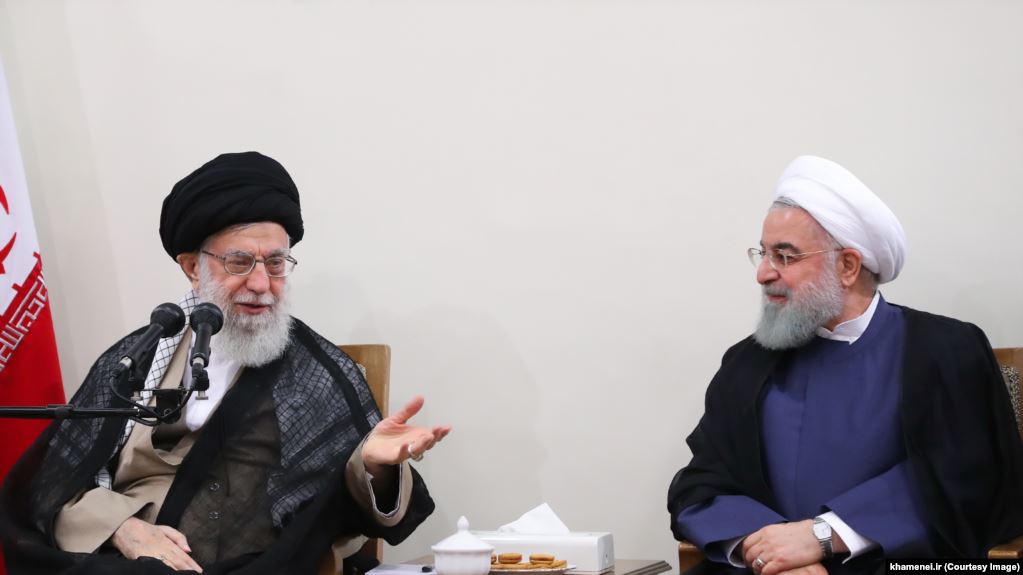
11 days after President Hassan Rouhani had requested Iran’s Supreme Leader Ali Khamenei to release 1 billion euros from the National Development Fund of Iran (NDFI) to fight the coronavirus outbreak, Khamenei agreed to the request.
Rouhani wrote a letter to Khamenei, asking him to release 1 billion euros from the NDFI to fight the coronavirus outbreak in the country. He stated that his government lacked sufficient financial resources to contain coronavirus.
Khamenei had previously agreed to release funds from the NDFI on several occasions – the last of which was 200 million euros dedicated to the IRGC’s Quds Force merely four days after its late commander, Qassem Soleimani, was killed.
Meanwhile, Rouhani expressed his gratitude to Khamenei for his approval while issuing instructions to meet the necessary needs to fight the coronavirus disease.
The National Development Fund of Iran was established in 2011 to transform oil and gas revenues into productive investments, according to its own regulation. However, some economists believe that the NDFI has turned into an endowment that finances military expenses.
Parliament Warns About the Coronavirus Fallout: Unemployment and Unrest to Increase
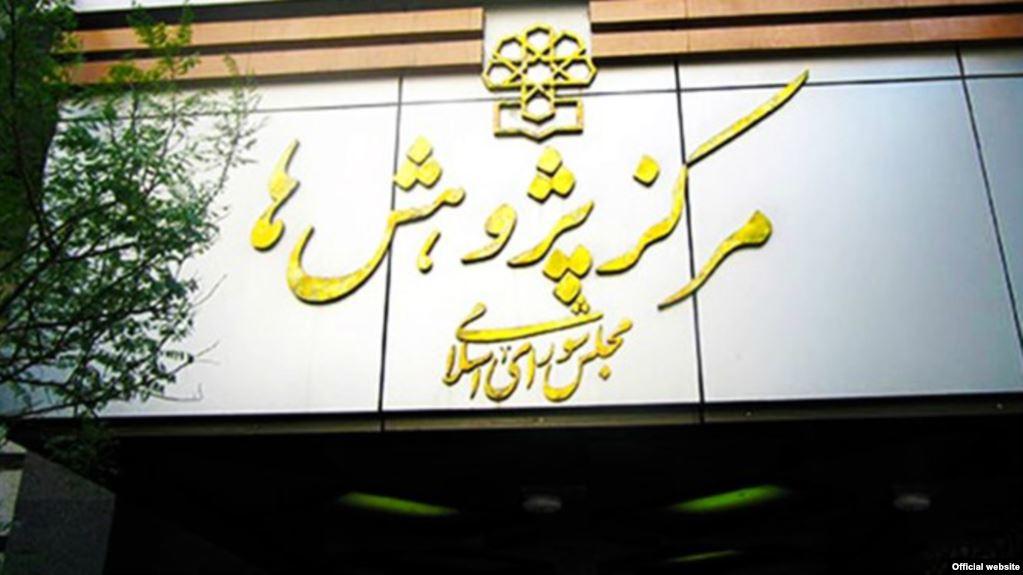
The Iranian Parliament’s Research Center in a report on the consequences of the coronavirus outbreak in Iran announced that Iran’s exports in March witnessed a 30 percent drop compared to the same period last year.
According to this report, banking transactions in early March experienced a considerable drop, while there were considerable economic pressures on the service sector due to the coronavirus outbreak.
The report mentioned that despite the government taking steps to implement “smart social distancing” to normalize activities in the economic sector, “serious doubts” exist as to whether this will be a success.
The Coronavirus Combat and Prevention Headquarters had announced that social distancing would be implemented to fight the coronavirus outbreak, but later said that “smart social distancing” would be enforced which is less strict.
The report also warns about unemployment due to the coronavirus crisis, proposing that with proper planning, the government must prevent possible “unrest.”
The Parliament’s Research Center, in its previous report, has pointed to delays in supporting the poor, saying that if this continued, it would lead to “painful consequences.”
Forced Child Marriages Increase due to the Coronavirus Outbreak
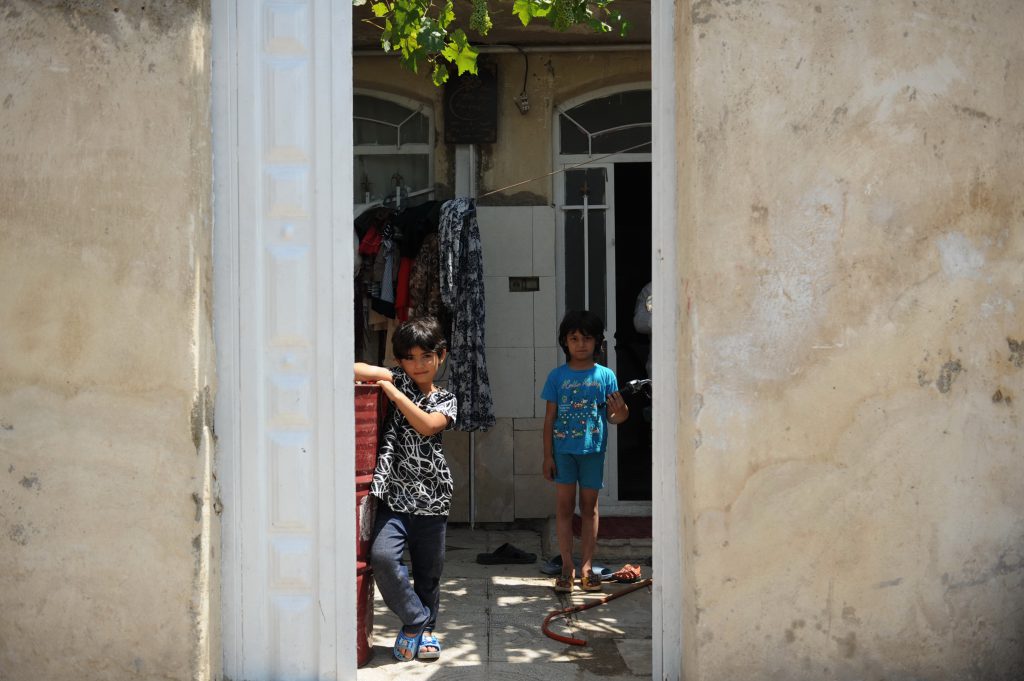
Almost two months after the coronavirus outbreak in Iran, new damage caused by this virus is being revealed every day. With its impact on the economy, social life, culture, education, and vulnerable groups, the coronavirus is claiming more and more victims.
According to Zahra Rahimi, CEO of Imam Ali Community, as a result of the coronavirus outbreak and the economic fallout in certain regions of Iran, the rate of forced child marriage has gone up.
She said that the economic fallout because of the coronavirus outbreak has impacted children. She added, “We are even informed that these children have turned to drug dealing because of the rumor that opium prevents the coronavirus infection.”
Zahra Rahimi added that many low-income, vulnerable groups in Iran are deprived of the necessary conditions to prevent the spread of COVID-19 infections, explaining: “Most of these people cannot stay home to prevent getting infected. When 10 individuals are living in a 40-meter space, it is not possible for them to stay home. Or when someone cannot access water, how can you expect them to wash their hands regularly?”
Sociologist Saeed Madani said with regard to the impact of the coronavirus that violence in families – particularly against women and children – has gone up and has resulted in an increase in divorce and crime rates. He added that the government has not thought of any measures to help these groups and more people will be under the poverty line, emphasizing that “those who cannot have any incomes in the next two months will be severely impacted.”
Contract Worker Union Warns About a Wave of Worker Dismissals
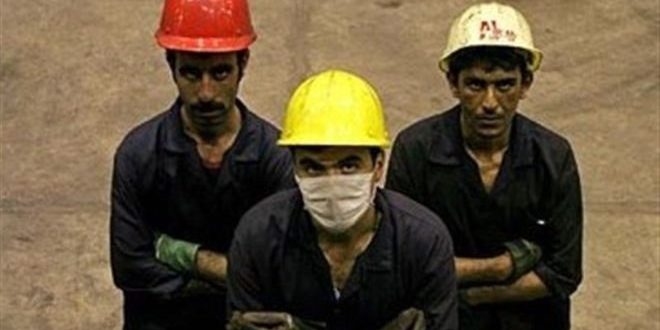
Head of Iran’s contract worker union Fathollah Bayat criticized the fact that no decision has been made regarding the salaries of workers and retirees, expressing worries that during the coronavirus outbreak, workers in small companies are at risk of being fired and if this situation continues, it can make the crisis deeper and more dangerous.
Bayat told ILNA that the economic fallout of the coronavirus outbreak can already be seen on the lives of workers, adding that “We have started the new year at the peak of a crisis. If this situation continues for a couple of more months, the crisis can become more dangerous – unless some immediate measures are taken and damages are compensated.”
The outbreak of the coronavirus in Iran has exacerbated the issue of unemployment in the country. Day by day, temporary workers have lost their sources of income. According to a member of the Supreme Council of Labor, employers are firing workers or furloughing them on the pretext of the coronavirus outbreak. Meanwhile, officials are not concerned about workers and are only interested in keeping them quiet.
Hundreds of workers in the provinces of Kermanshah, Khuzestan and Hormuzgan have lost their jobs, and these workers are asking for unemployment insurance. Most workers who have lost their jobs haven’t been paid for months, and now with factories closing, it has become less likely they would get paid.
80 Political Prisoners Taken From Ahvaz to an Unknown Location After Unrest in Prison
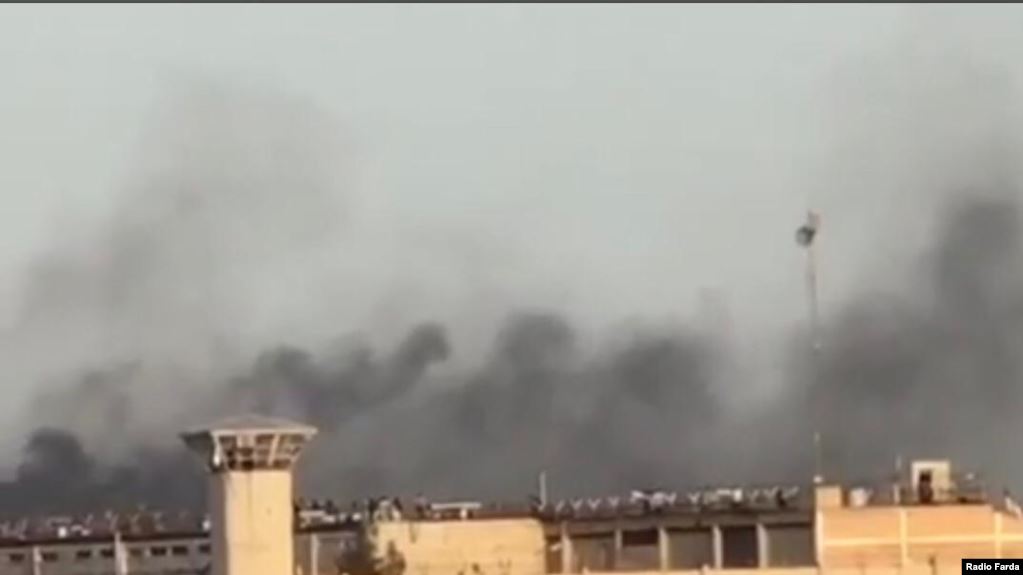
More than 80 political and civil activists incarcerated in Sheyban prison in the southern city of Ahvaz have been transferred to an unknown location after protests erupted in the prison five days ago.
Prisoners held in Sheyban prison had staged protests due to their concerns about contracting the coronavirus and the lack of medical care. Reports indicate that the police force opened fire at the prisoners, wounding them. It is not clear what has happened to these prisoners after they were transferred from the prison.
Moreover, a number of prisoners at Sepidar Prison in Ahvaz were recently killed after being shot by security forces. Not to mention that a number of them suffered burns and lost their lives because of the shooting.
Due to growing concerns among prisoners over the coronavirus epidemic, prisons in Iran have become scenes of clashes and unrest. There have been several reports about riots in prisons located in Tabriz, Hamedan, Aligoodarz, and Fasha Fouyeh after which the Chief Justice Ebrahim Raisi ordered an increase in the “security personnel guarding” prisons.
A Lawmaker is Charged After saying That no Arrest has Been Made in the Case of the Downed Ukrainian Passenger Plane
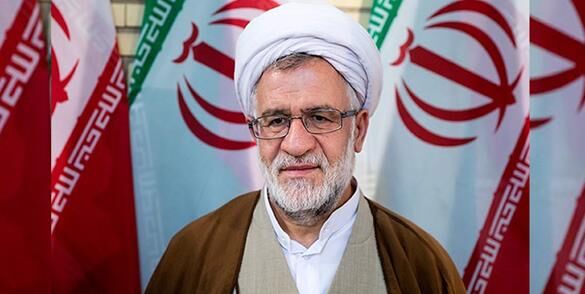
The Judiciary Organization of the Armed Forces has charged MP Hassan Norouzi for saying that no arrest has been made in relation to the case of the Ukrainian passenger plane which was shot down by the IRGC in January.
Shokrollah Bahrami, head of the Judiciary Organization of the Armed Forces, said that Norouzi’s comments were “untrue” and “provoked agitation of the public mind.” According to Bahrami, one individual was arrested, and several were summoned in this regard.
Parliament Member Hassan Norouzi had recently said no one had been arrested in relation to this case. Norouzi, who is a member of the Parliament’s judicial and legal committee, also remarked: “This plane had been in Israel a week before [the incident] and it seems that it was manipulated.”
In an interview with Hamdeli newspaper, Hassan Norouzi also claimed Iran had no control of the Ukrainian airliner “which was guided by other countries; therefore, our military forces performed their duty very well.”
Nonetheless, the head of the Judiciary Organization of the Armed Forces pointed out that Norouzi made those remarks based on his own understanding and without any information about the issue: “Such statements would not only disrupt judicial investigations but provoke agitation of the public mind.”
The Ukraine International Airline Flight 752 was shot down by the IRGC shortly after it took off from an airport in Tehran on January 2. All of its 176 passengers and crew were killed.
